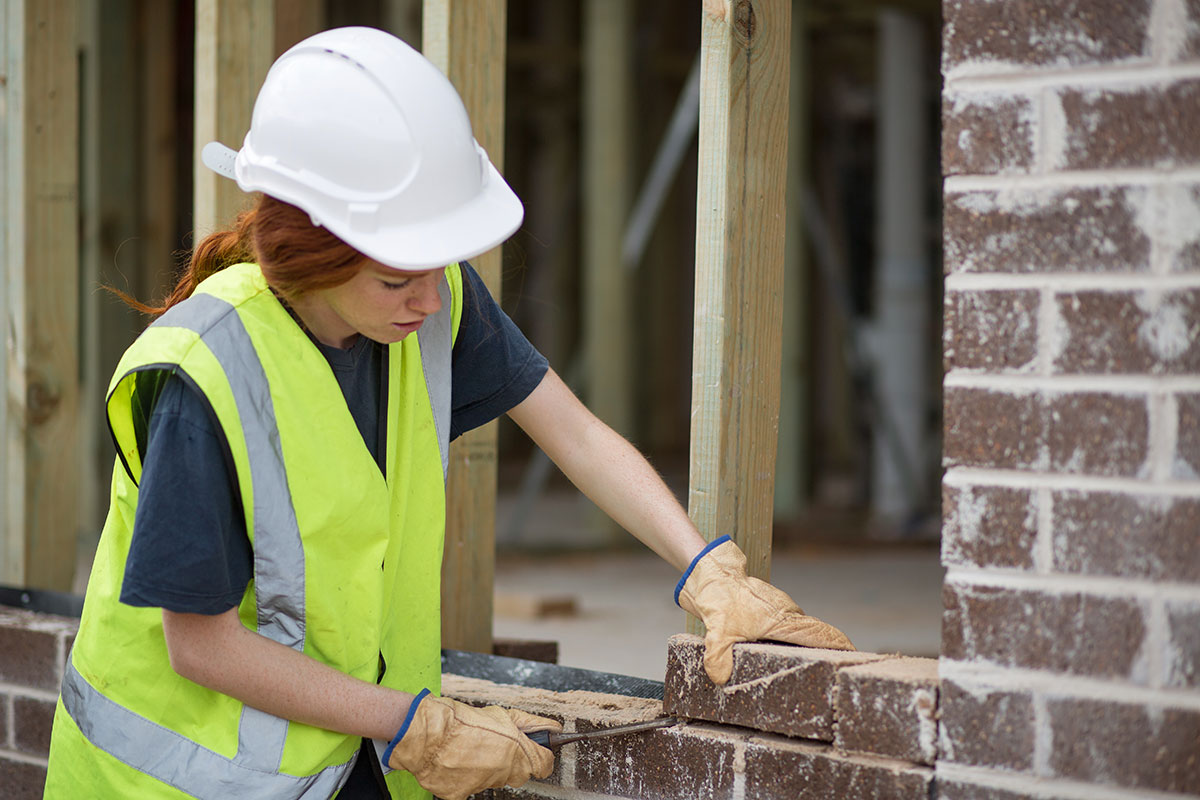Ready for the future
Construction trainees must learn the skills to succeed as the industry changes, says Mark Farmer
In association with:

The government may have recently shortlisted new Institutes of Technology, and named the first institutions which will offer the new technical qualifications known as ‘T levels’, but this has still been a year of frustration for our sector as we continue to struggle to overhaul the skills and training landscape.
Although we have had a record-breaking number of apprenticeship starts in 2017/2018 – just over 26,000 – the Construction Industry Training Board (CITB) has stated we need 31,000 new workers a year, with a proportion of these working in housebuilding. The important distinction, as always, is between starts and successful apprenticeship outcomes. These have tended to be very different numbers, with high attrition rates along the journey towards recognised qualifications and competences.
Decline in apprenticeships
The current feeling from the industry is also that the apprenticeship levy is effectively an employment tax and the implementation plan to deliver the government’s three million apprenticeship starts by 2020 has just not been up to scratch. The country is currently facing a decline – not a rise – in apprenticeship starts. So where are the problems?
First, we have a problem with apprenticeship standards. We cannot seem to get construction standards through the current approval process. The barriers to this include the requirement for the process to be employer-led. There appears to be some major disconnects between the sector’s demands on the one hand, and on the other, the Institute for Apprenticeships (IFA) and their expectations on what constitutes an appropriate qualification.
Content deemed appropriate by construction employers is not understood or recognised by the IFA, and activities deemed essential to construction are excluded – potentially resulting in a qualification that does not deliver the right skills.
The role of professional bodies – which are well-respected and recognised in construction – is also not understood by the IFA, and these organisations are excluded from the accreditation process despite being well-placed to deliver the end-point assessments.
When it comes to T levels, we also have the patently ridiculous position of an IFA Construction Route Panel apparently disagreeing with the Department for Education’s Construction T Level Panel on course content and format. This will delay any effective introduction and will only further call into question the role of T levels in our industry.
Second, there are still concerns about the funding regime. It is true there has been positive progress – the 2018/2021 CITB Business Plan is launching a new training model, grant scheme and a flexible and structured funding approach. Hopefully, this will start to address the historical concerns the industry has had with the distribution of the CITB levy.
But when it comes to the apprenticeship levy, it is clear that major problems exist. The funding allocated to apprenticeship standards seems to bear little relation to the technical content, or cost, of the apprenticeship or its economic or industry value. As a result, some essential occupations are or will be undeliverable – for example construction and site engineering, or groundwork.
The proposal to allow firms to transfer a proportion of apprenticeship levy funds to other businesses is sound, but the process as currently mandated will not allow the construction and housebuilding sectors to use it effectively. That’s because the ability to transfer funds to just one other employer is not reflective of our sector’s diverse use of sub-contracting.
Third, there is a fundamental problem with delivery. Without a fit-for-purpose delivery system, employers – particularly small and medium-sized enterprises (SME) – will struggle to deliver apprenticeships at scale. It is clear the problems associated with the CITB’s levy distribution in the past are now being potentially repeated by the apprenticeship levy framework.
Barriers include the fact that each training provider has a unique contract, which requires repeated due diligence – creating another hurdle for SMEs. Added to that, the lack of construction standards means providers are falling away and will not be replaced, resulting in some apprenticeships having no training or delivery capacity. There are also many risks around gaming the system and inadvertent outcomes in terms of the choice and cost of courses being run.
The CITB reforms need to accelerate change so that it starts to be felt on the ground. Many in the housebuilding industry will want the immediate focus to be on existing skills shortages – in bricklaying and quantity surveying, for example.
This is understandable and does need to be addressed, but the sector also needs to think strategically about its future needs and improved productivity.
New technology
CITB has a large role to play here in helping ‘pump prime’ a new set of competencies and career families that embrace precision manufacturing and digital construction.
Everyone, from SMEs to large players, and design offices to site operatives, will over the next few years be affected by what in some instances could be dramatic technology-led change. The beginnings of this revolution have become apparent over the past 12 months, with some of the most interesting developments being in technology, such as augmented reality and on-site robotics/drones that will be used en masse by SMEs.
The standards we set now need to offer the next generation of young people the opportunity to work in a more diverse and attractive industry, enhancing social mobility and motivating them to deliver high-quality work in a way that reflects the 21st century industrial landscape. This will pose a serious challenge for training providers, who need to find and recruit teachers and lecturers who understand the future, not the past.
In summary, a new skills and training landscape is beckoning. But for this to be realised, we need three things.
First, we need to resolve some of the systemic and institutional barriers to progress. Second, the CITB agenda for change must accelerate. And third, the industry itself must increasingly take responsibility for future-proofing the skills it will need in the years ahead. If we can do all of this, we stand a chance of delivering the additional homes this country needs, to a consistently high standard, and with a well-motivated workforce taking pride in making a difference to our society.
Mark Farmer, founding director and chief executive, Cast Consultancy








